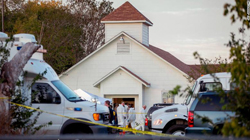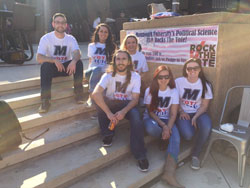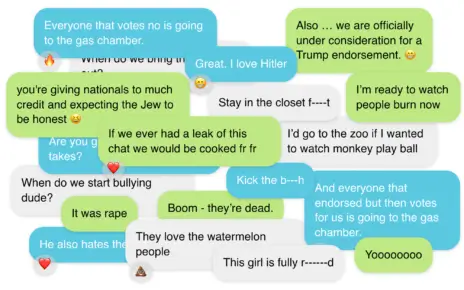In less than a week apart, two acts of terror occurred in the United States. The first was an attack in New York City on Oct. 31; the other took place six days later at the First Baptist Church in Sutherland Springs, TX, on Nov. 5.
According to the New York Police Department (NYPD), the killer, identified as Sayfullo Habibullaevic Saipov, rented a truck from a Home Depot in Passaic, NJ, and made his way to Manhattan. Upon entering the city, Saipov verged onto a bike pathway, and drove into pedestrians and bicyclists, taking innocent lives before colliding with a school bus that carried children with special needs. Saipov subsequently left the truck and shot both a paintball gun and a pellet gun before being arrested.
On the same day of the attacks in New York, President Trump was quick to order stricter immigration laws, tweeting: “I have just ordered Homeland Security to step up our already Extreme Vetting Program. Being politically correct is fine, but not for this!” In a later speech, Trump stated that his administration was going to “further investigate this animal who did the attacking.”
Following through on a promise in his 2016 presidential campaign, Trump said he was “starting the process of terminating the diversity lottery program.”
Additionally, the New York Times reported Trump called for Saipov to receive the death penalty, even suggesting to send him to Guantanamo Bay.
In the second attack, the shooter, Devin Patrick Kelley, opened fire on the TX church, killing 26 people before entering in a shoot-out with a neighbor, CNN reports. Kelley was later found dead in his SUV, with a gunshot wound to the head.
 Trump’s reaction to the shooting in Texas differed from that of the New York attack. Trump briefly sent his condolences to the families of the horrific attack in Texas, while delivering another speech in Japan on Nov. 6. Trump spent little time on this mass shooting before continuing with his scheduled speech. While calling this attack an “act of evil,” he declared the NY killer, himself, an “animal.” Later, in a joint news conference with the Prime Minister of Japan, Trump said the shooting “isn’t a guns’ situation,” it is a “mental health problem at the highest level,” and subsequently called Kelley a “deranged individual.” Additionally, Trump said it was “simply too soon” to talk about gun control, yet was quick to tweet about ending the lottery Visa program after the attack in New York.
Trump’s reaction to the shooting in Texas differed from that of the New York attack. Trump briefly sent his condolences to the families of the horrific attack in Texas, while delivering another speech in Japan on Nov. 6. Trump spent little time on this mass shooting before continuing with his scheduled speech. While calling this attack an “act of evil,” he declared the NY killer, himself, an “animal.” Later, in a joint news conference with the Prime Minister of Japan, Trump said the shooting “isn’t a guns’ situation,” it is a “mental health problem at the highest level,” and subsequently called Kelley a “deranged individual.” Additionally, Trump said it was “simply too soon” to talk about gun control, yet was quick to tweet about ending the lottery Visa program after the attack in New York.
Moreover, Trump has rolled back Obama-era regulations that made it difficult for individuals with mental illnesses to purchase guns–individuals such as Kelley. The regulation was replaced with H.J. Resolution 40, which instead is aimed at limiting the access of guns only for people that received full disability benefits because of a mental illness and people who could not manage their own Social Security benefits.
The two different positions taken by Trump in regards to these attacks are evident in both his speeches and tweets. “This has been an issue for the Trump administration over the year,” Joseph Patten, Ph.D., an associate professor of political science, said. “For instance in Charlottesville, in terms of his reaction to the Neo-Nazi marching, saying that some of them were really good guys,” he continued. “His administration has been criticized by some for not holding an equal standard particularly against terrorism.”
Kevin Dooley, Ph.D., an associate professor of political science, explains Trump’s statements of gun control is patronage to his base that support their Second Amendment right to bear arms. “He realizes at a certain level those people make up a majority of his base,” Dooley said.
“I think he’s just playing into a political base; I don’t know if there’s anything more than saying ‘I have to be consistent in what I’ve said to people during the campaign, and now I’m being consistent as a president,” he added.
The Centers for Disease Control and Prevention of the U.S. State Department released data that shows over 440,095 people have been killed by firearms in the United States while 3,412 have been killed through foreign terrorism.
“I don’t understand why Trump can call the New York attacker a ‘terrorist,’ but not the attacker in the Texas shooting,” Nawaf Bousbait, a political science student, said. “They are both horrible men, and caused terror in the lives of the innocent.”
IMAGE TAKEN from Huffington Post



